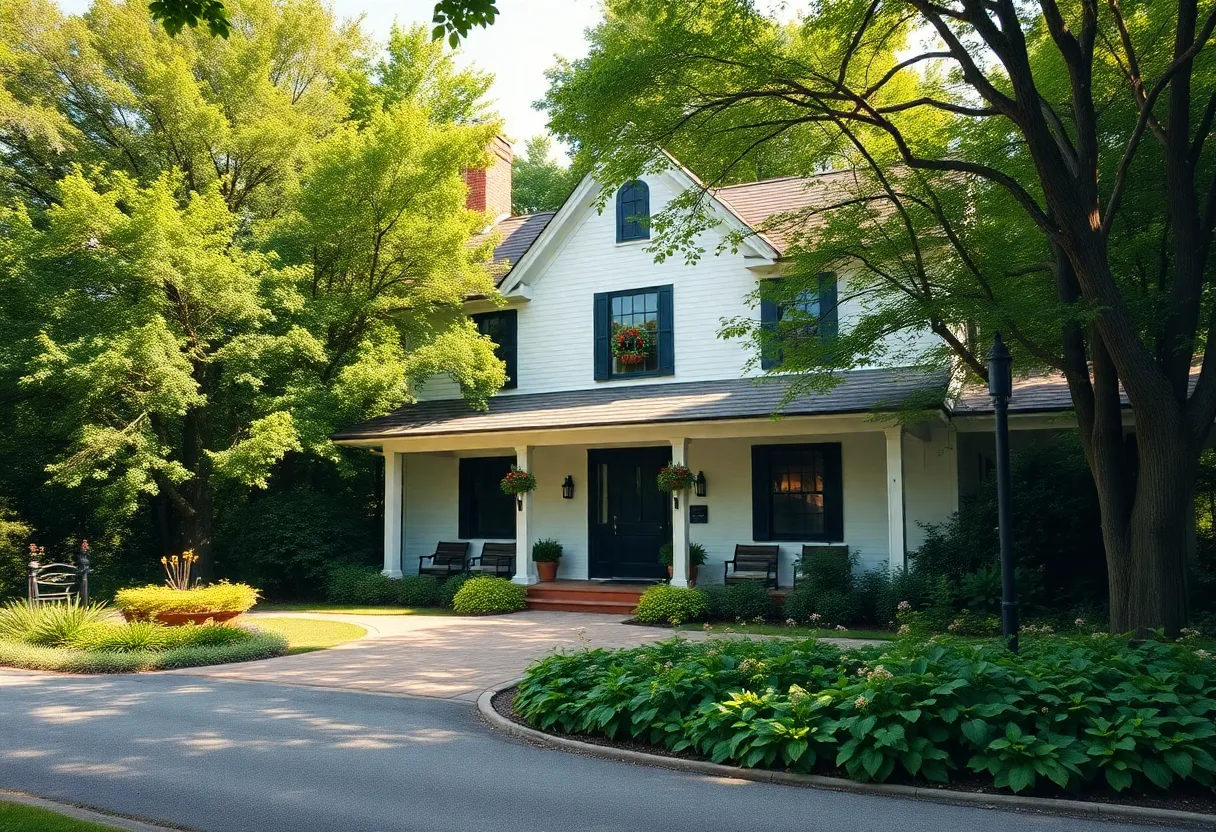News Summary
The Byrd Center, a historic farmhouse near Ann Arbor, has been transformed into the African American Cultural and Historical Museum, preserving local Black history. This renovation, funded by community efforts, showcases artifacts and plans for future educational programs, while holding significant historical value as the former office of Black architect David Byrd. The museum now offers a vibrant space for community engagement and celebrates the contributions of the African American community.
Breathing New Life into History: The Renovation of a Historic Farmhouse for Black Culture
Exciting news is brewing just outside Ann Arbor, where a historic farmhouse is stepping into a new era as the African American Cultural and Historical Museum of Washtenaw County officially opens its doors! This delightful transformation is just what the community needed to showcase its rich Black history in a vibrant, inviting space.
The Byrd Center: A Historic Gem
The farmhouse, affectionately known as the Byrd Center, boasts approximately 180 years of history. Once home to David Byrd, an esteemed Black architect and educator, this charming building has undergone an impressive renovation that not only preserves its past but also enhances its future. Did you know that, prior to becoming a museum, the Byrd Center served as David’s office? It is incredible how spaces can evolve while maintaining their historical significance!
A Glimpse into Local Black History
The museum is dedicated to highlighting local Black history, showcasing artifacts that connect the community with its roots. Current exhibits include a writing desk that once belonged to Herbert Day, part of one of the earliest Black families in Washtenaw County! Patrons can also admire a Buffalo Soldier uniform, representing the bravery and contributions of African Americans throughout history.
Among the fascinating items displayed are personal belongings from iconic figures like Robert Hayden, the first Black U.S. Library of Congress Poet Laureate, and Vanzetti Hamilton, a pioneering attorney from Ypsilanti. These artifacts do more than just tell a story; they breathe life into the contributions and triumphs of the Black community.
A Labor of Love
Behind this remarkable renovation lies the dedication of community members and supporters, including significant funding efforts totaling $300,000 from the Song Foundation and local patrons. It’s heartening to know that the museum’s board navigated the purchase and renovation process without any loans, thanks to frugal financial management and the strong trust of the community.
For over 15 years, the museum had made use of the farmhouse for artifact storage and meetings before finally purchasing it in December 2022. The late Letitia Byrd, David Byrd’s wife, was instrumental in rallying support and ensuring that this historic property was preserved for future generations before her passing in 2018. The love for this rich history clearly runs deep.
Future Plans for the Museum
As the museum settles into its new home, there are exciting plans on the horizon! Not only will the historic farmhouse serve as a permanent home for the museum, but there are also discussions about renovating the barn on the property for additional programming. Imagine educational summer camps and community gatherings happening right in the beautiful outdoor space of the Byrd Center!
The museum opens its doors every Saturday and Sunday from noon to 4 p.m., offering a chance for visitors to learn and engage with the local Black history. Special events, classes, and workshops are also hosted throughout the year, including joyful celebrations during Kwanzaa.
A Historic District for Preservation
Earlier this year, the Byrd Center was named a local historic district! This designation is a significant milestone that ensures the preservation of this important landmark amidst the growing suburban development surrounding it. Originally part of a sprawling 480-acre farm, the property has seen many transitions since its acquisition from the U.S. government back in 1825.
Looking Back to Move Forward
The African American Cultural and Historical Museum’s journey began in 1993 as “a museum without walls,” highlighting the importance of local history through community programs and exhibits. Now, with a permanent location, the museum stands as a testament to the resilience and vibrancy of the African American community in Washtenaw County.
The renovation of the Byrd Center not only revives a historic treasure, it promotes education and community connection, honoring the legacy of those who came before. If you haven’t yet had the chance to visit, this is the perfect opportunity to experience the rich history that the museum has to offer!
Deeper Dive: News & Info About This Topic
HERE Resources
Additional Resources
- MLive: Black History Museum Opens New Home
- Wikipedia: History of African Americans in Michigan
- Culture Type: Election 2024 Museums
- Google Search: African American history in Washtenaw County
- Detroit Free Press: Michigan Central Station and Black Detroiters
- Britannica: African American
- MLive: Renovation of Historic Farmhouse








